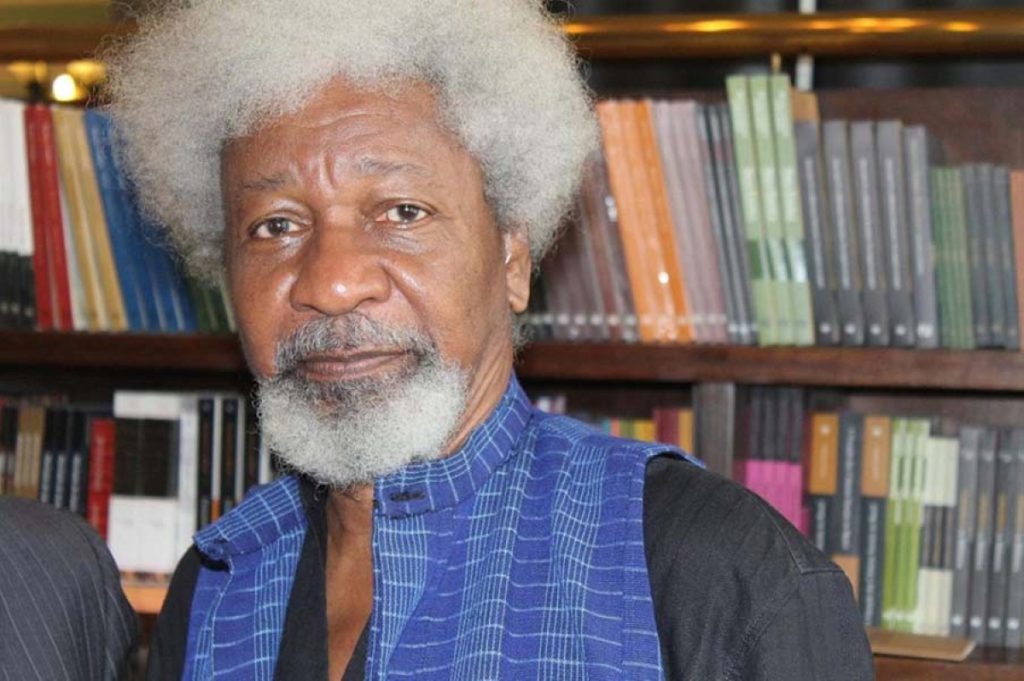Nobel Laureate Wole Soyinka has expressed his concerns about the forthcoming film adaptation of his life story, admitting that he feels uneasy about having his experiences depicted on screen.
In an exclusive interview with CNN, the 90-year-old playwright spoke about ‘The Man Died’, a feature film based on his 1972 memoir that recounts his 22 months of imprisonment during Nigeria’s military regime.
“Let me put it this way: Turning anything in my life into something other people can watch pains me,” Soyinka said.
This is the first time Soyinka has publicly spoken about the film, which draws on his traumatic experiences during the Nigerian Civil War and his time in solitary confinement. ‘The Man Died’ tells the story of his detention under General Yakubu Gowon’s military government in the late 1960s, during which he spent nearly two years in isolation, often deprived of basic materials for writing or reading.
Although he has reservations about the film, Soyinka revealed that he played a part in its production, helping the filmmakers locate places significant to his story.
He reminisced about assisting the production team in their search for a house similar to where he hid during the Civil War, reflecting his life marked by secrecy and activism.
“I assisted them in trying to locate a house in which I hid and operated during the civil war. They were looking for something close to what we used during that period,” he said.
The film, titled after his autobiography, is helmed by Nigerian director Bode Asiyanbi and produced by Femi Odugbemi. It stars actors Wole Ojo, Chidi Mokeme, Sam Dede, and Nobert Young.
Its release is highly anticipated, following the unveiling of its cast and crew earlier this year by Nigerian publication PREMIUM TIMES. The movie was initially scheduled for a July release.
Soyinka’s incarceration during the Civil War remains a pivotal period in his life, influencing much of his subsequent literary work and activism. Recalling his time in solitary confinement, Soyinka depicted it as both a mental and physical ordeal.
“It was a very testing period for me. Twenty-two months in total isolation, denied books, denied paper, my cell constantly searched, nothing at all to sustain my mind,” he said.
“I think one of the most cunning categories of humanity I’ve ever encountered is the prisoner. The prisoner has to survive. It’s a survival test, not a question of self-advancement.”
Soyinka described how he utilised whatever resources were at his disposal to preserve his mental acuity during that time, creating ink from soil and repurposing bones from his meals as writing implements. He remembered undertaking challenging mental tasks, including geometry and trigonometry, to keep his mind sharp.
“In solitary confinement, what is the most space-economic enterprise you could undertake? The mental enterprise. I made my ink with dirt; I made my pen from the bones in the meat of my food, creating a complete self-sustaining mental micro-world of my own,” he said.
The experience profoundly impacted the literary giant, whose body of work continues to explore themes of oppression, justice, and survival. Soyinka is recognised as one of Africa’s foremost literary figures, celebrated for works such as ‘The Lion and the Jewel’ (1959), ‘Kongi’s Harvest’ (1964), and ‘Madmen and Specialists’ (1970).
In 1986, he made history as the first sub-Saharan African to win the Nobel Prize in Literature, solidifying his reputation as a global literary icon. His extensive oeuvre spans multiple genres, including plays, novels, poetry, and essays, often tackling political and social issues in post-colonial Africa.
While Soyinka has voiced his discomfort about the film’s portrayal of his life, ‘The Man Died’ seeks to share his remarkable story of resilience and resistance with a broader audience. The film contributes to the growing body of work that celebrates the life and legacy of one of Nigeria’s most influential cultural and political figures.

